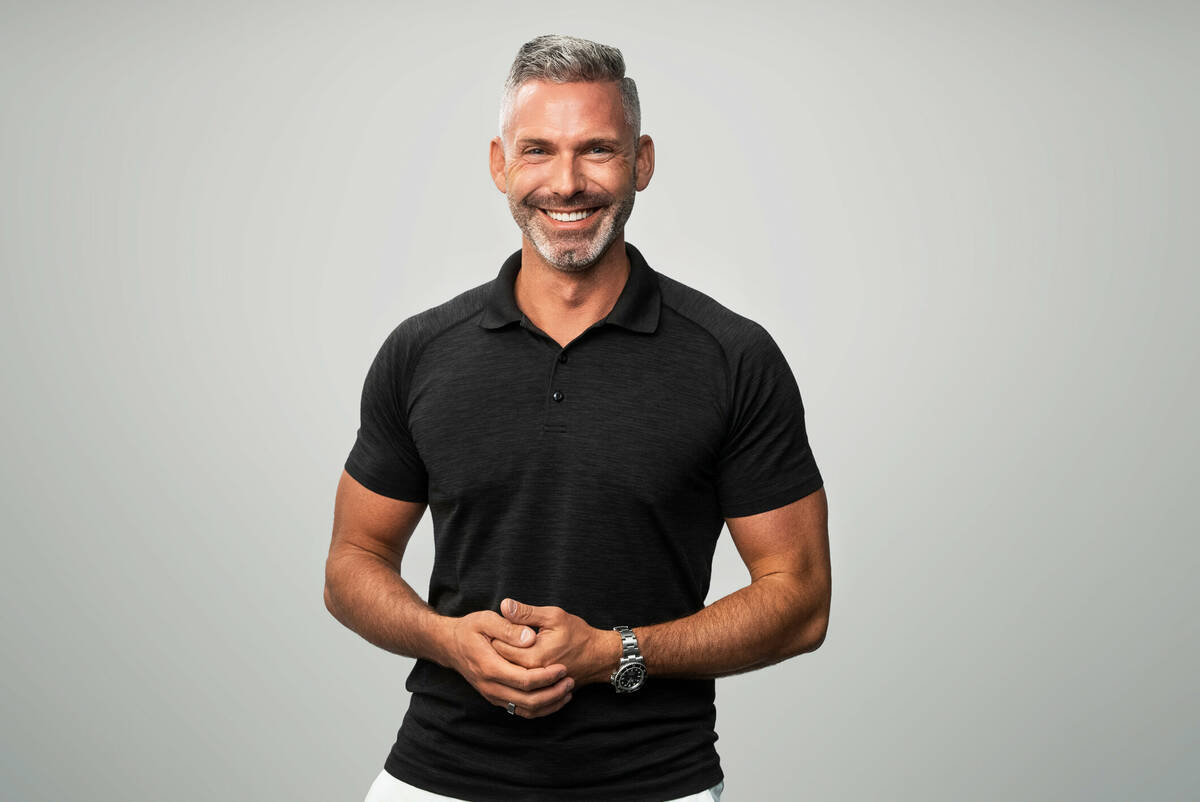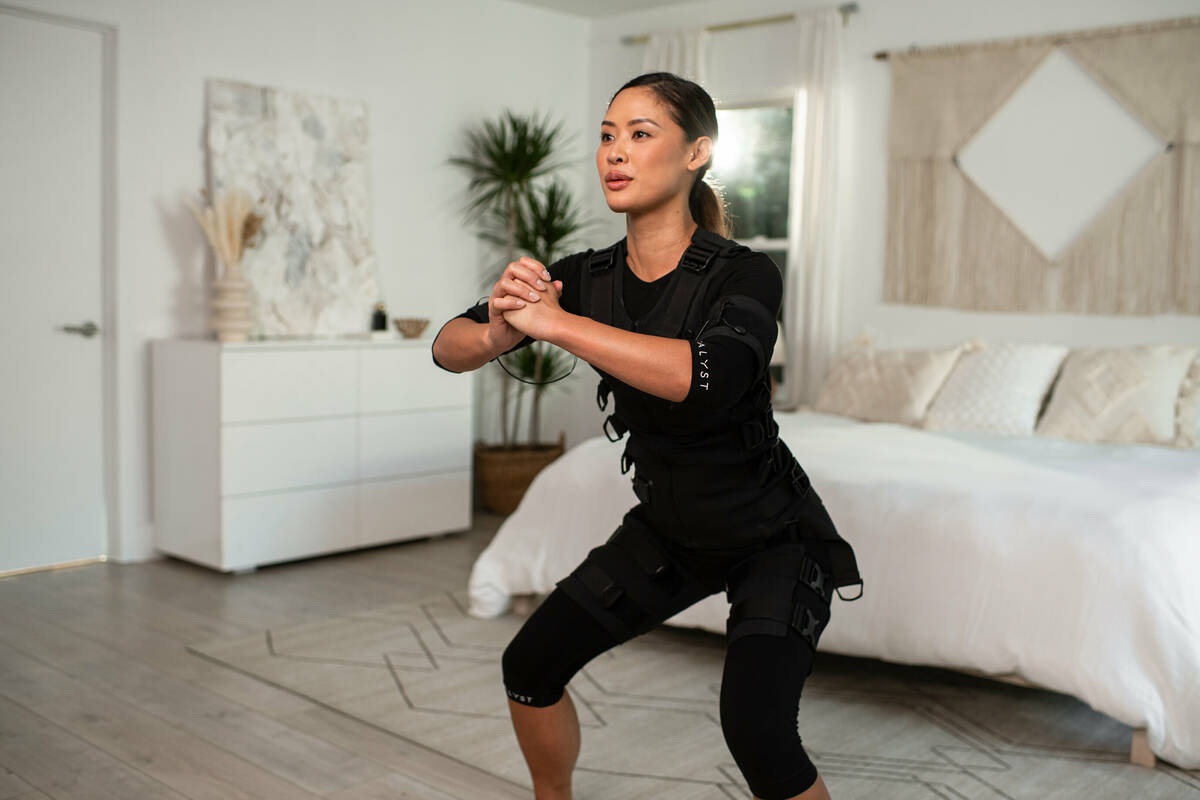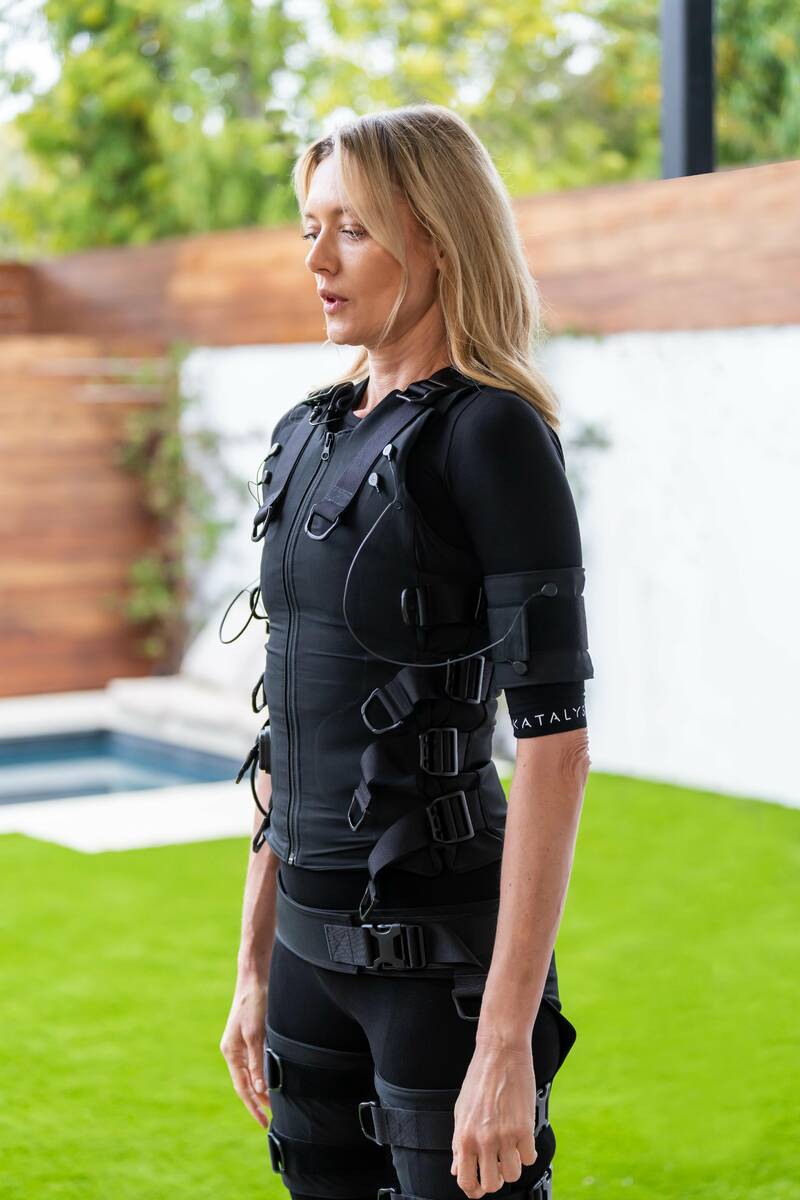This Las Vegas startup had one of the best inventions of 2023
A Las Vegas startup backed by the likes of supermodel Cindy Crawford has one of the best inventions of 2023, according to Time magazine.
Headquartered at UNLV’s Black Fire Innovation building, within the Harry Reid Research and Technology Park in the southwest valley, Katalyst went into overdrive after receiving $26 million in series A funding in 2022 from New York-based investment firm Stripes, with participation from Incisive Ventures, Unlock Venture Partners, Robert Nelsen, Crawford and Rande Gerber.
Katalyst, led by founder CEO Bjoern Woltermann, brings electro-muscle stimulation (EMS) training into the home, through its four-piece bodysuit. The company says its technology delivers a two-hour workout in 20 minutes. The startup has the only Federal Drug Administration-approved consumer device to offer full body EMS.
Last year Katalyst sold more than 4,000 units, three times more units than in 2022. They’ve worked with professional athletes from the MLB, UFC, NBA and NFL, and Woltermann, a native of Germany, said at the end of the day, the challenge of changing American’s minds when it comes to fitness is one he relishes.
And it’s a personal cause for him as well.
Back in the early 2010s, Woltermann was working in technology at T-Mobile in Germany. He was flying all over the world, taking about 150 flights a year. He also had a lower back condition, and at one point, he felt as if his body was literally breaking down on him.
“I ended up taking painkillers about 20 days a month,” Woltermann said. “And I couldn’t get out of bed properly. And my physician said I needed to strengthen my core to help stabilize my spine, or I was going to end up with a herniated disc. I was only 35 at the time so it was not a good diagnosis.”
That’s when Woltermann’s doctor recommended he try EMS, and he was sold right away.
EMS activates the muscles through electrical pulses through the skin, and at the time was primarily being used for injury recovery, but Woltermann said the European fitness world was embracing the technology as studios were popping up all over Germany.
After six weeks of using the therapy, Woltermann said he didn’t need his pain meds and getting out of bed was easy again. He also saw an opportunity, as the technology was still new and the majority of the population didn’t know about it.
It led him on the journey to create his own studios in the U.S. and technology where people could do the workout at home.
But Woltermann quickly found out that getting the company started and breaking into the U.S. was going to be anything but easy. He approached some European companies at a conference, telling them he was going to help them launch their product in the U.S., but no one bit. So, he decided to do it himself.
After building a team and making the first device, Woltermann received FDA approval in 2017 and opened three studios in Seattle. Woltermann said clients were pouring in, but they complained about the commute into the studio.
Then in 2020, while working on the home version, the COVID-19 pandemic hit and Woltermann said the company had to go completely remote. But he said it turned out to be a blessing in disguise for the company, as he moved headquarters to Las Vegas in February 2021, and then launched the at-home product shortly after.
Woltermann said he picked Las Vegas because of Nevada’s business-friendly climate and less stringent COVID restrictions. He said he also liked the location of Harry Reid International Airport.
But that transition didn’t go smoothly either, with pandemic-related supply chain issues causing Katalyst to run out of materials it needed to produce its products. It was stalled for nearly two years.
But with new funding on board, last year Katalyst was able to sell more units than ever.
Contact Patrick Blennerhassett at pblennerhassett@reviewjournal.com.




















